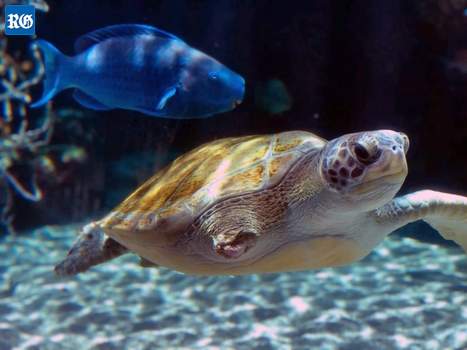Recent News
Reef Watch Event Postponed Due To KarlWednesday, September 21, 2016
The Bermuda Zoological Society has announced that due to the possibility of Karl impacting Bermuda over the weekend, the Reef Watch event will be postponed until Saturday, 8th October.
New study of parrotfish
Thursday, September 15, 2016
Bermuda’s healthy population of parrotfish, colourful reef grazers that have all but vanished in many islands, are under new study.
‘Reef Watch’ calls for participants
Wednesday, September 07, 2016
The Bermuda Zoological Society is looking for teams of researchers to help survey coral reefs around the island.
Trip ‘of a lifetime’ to Madagascar
Wednesday, September 07, 2016
A group of budding Bermudian conservationists have enjoyed the “trip of a lifetime” to the rural communities and rainforests of Madagascar.
BZS: Help Raise Funds For Reef Conservation
Tuesday, September 06, 2016
For a fourth consecutive year, the Bermuda Zoological Society [BZS] is heading out on the water with its team of citizen scientists to survey coral reefs around the island as a part of the annual BZS REEF Watch, with the excursion taking place with the support of lead sponsor HISCOX.
About
GovernanceAbout Us
Newsletter
Latest News
Gift & Bookstore
Contact
General Inquiries
info@bzs.bm
Latest News
All the latest updates and news from the Bermuda Aquarium, Museum, and Zoo, one of Bermuda's leading visitor attractions!
Press Release
Published Jun 7, 2018 at 2:38 pm (Updated Jun 7, 2018 at 2:38 pm)

Today, June 8th, is World Oceans Day, and the theme for this year is the prevention of plastic pollution to encourage healthy oceans. On World Oceans Day, people around our blue planet celebrate and honour the ocean, which connects us all.
According to the World Oceans Day organisation, “plastic pollution poses a threat to human health, kills and harms marine life, damages and alters habitats, and can have substantial negative impacts on local economies. Research from the Ocean Project shows that pollution, especially plastics pollution, is already widely accepted as a big problem that we need to and can address.”
“The primary direct threat to marine life is entanglement or ingestion. Sea turtles, birds, and fish alike accidentally mistake plastic for food and choke or get sick by ingesting it. It’s distressing to think about how much plastic is almost unavoidable — sometimes, it can seem useless to take action. But if many of us act together, we can reduce the amount of plastic in the ocean, and show the world that we demand less disposable plastic in our everyday lives!”
At the Bermuda Aquarium, Museum and Zoo (BAMZ) we continuously encounter situations involving plastics and our marine life. These situations include turtles who become entangled in fishing lines, which can lead to loss of flippers or even the death of the animal. Ingestion of plastics also cause major problems in preventing animals from digesting food because of blockages in their intestinal tract.
Ocean plastic debris is not only a serious concern for marine life, but it can also be dangerous to human health! Scientists are finding that chemicals in plastic consumed by fish eventually travel up the food chain — and get into our bodies. So, by littering, we are not only poisoning the environment, we are also poisoning ourselves.
The Bermuda Zoological Society is asking its members and the entire community to play a part in plastic prevention by saying “No” to plastic. Substitute plastics for biodegradable materials, and when you visit the beach this summer collect 3 pieces of plastic and dispose of it in the proper receptacle.
As part of the celebration of the 50th anniversary of the Bermuda Turtle Project, on June 27th, Dr. Ian Walker, Principle Curator at BAMZ will be giving a lecture at the BAMZ on wildlife rehibition and the impact plastic pollution has on our environment, particularly sea turtles. Come out and learn what we do to save our marine creatures!
• Press release from Bermuda Zoological Society


